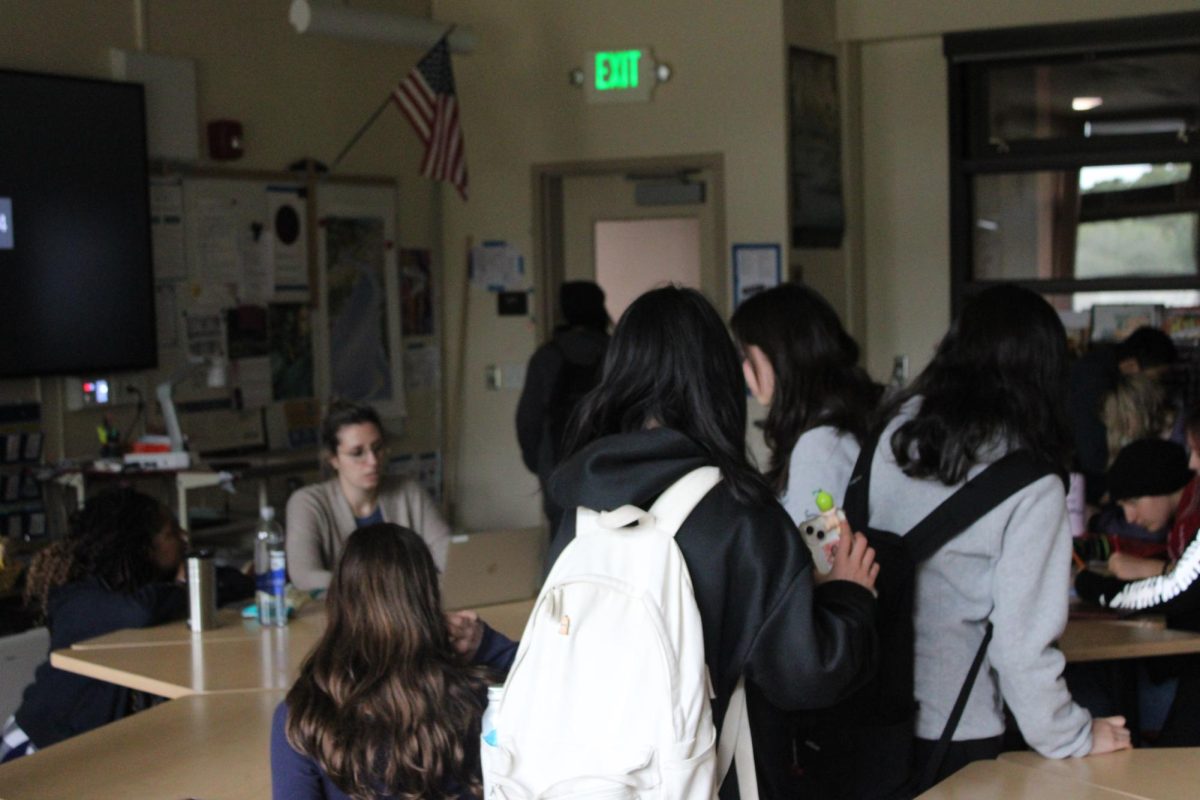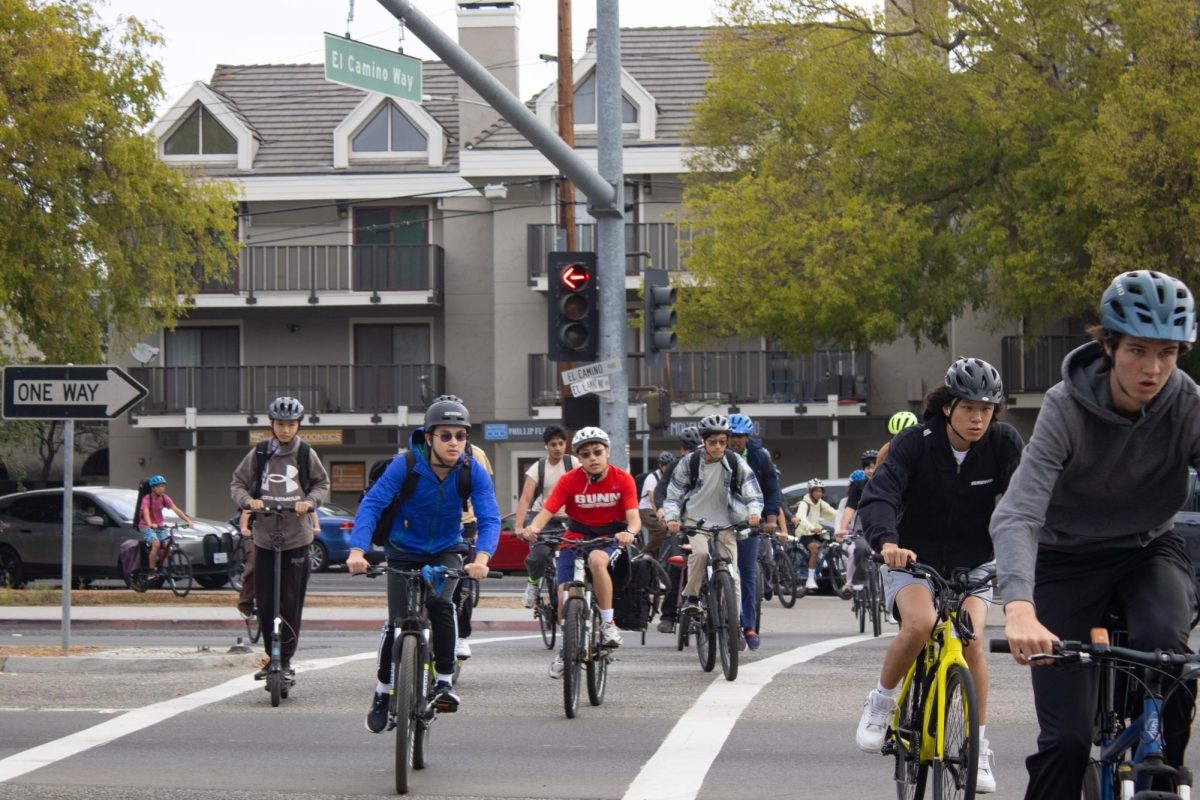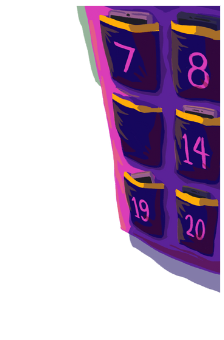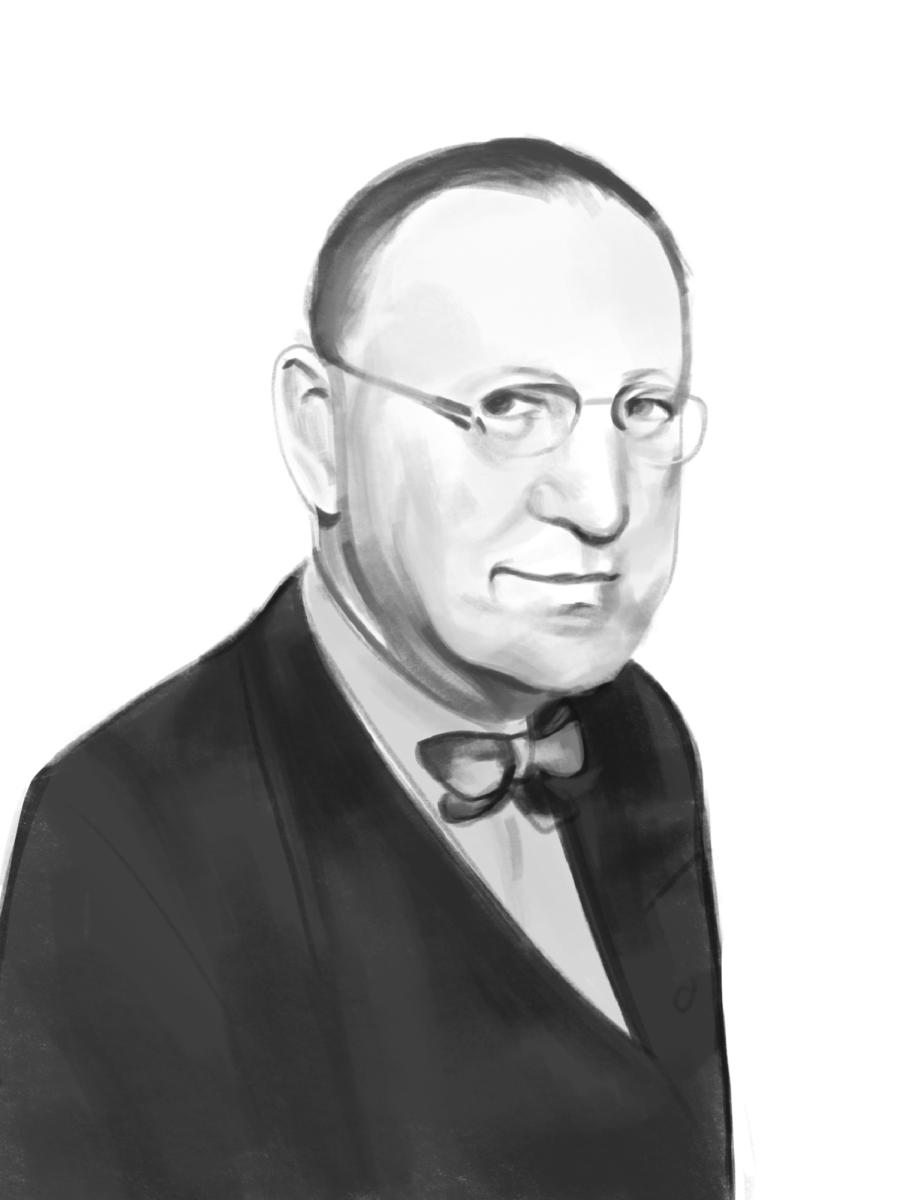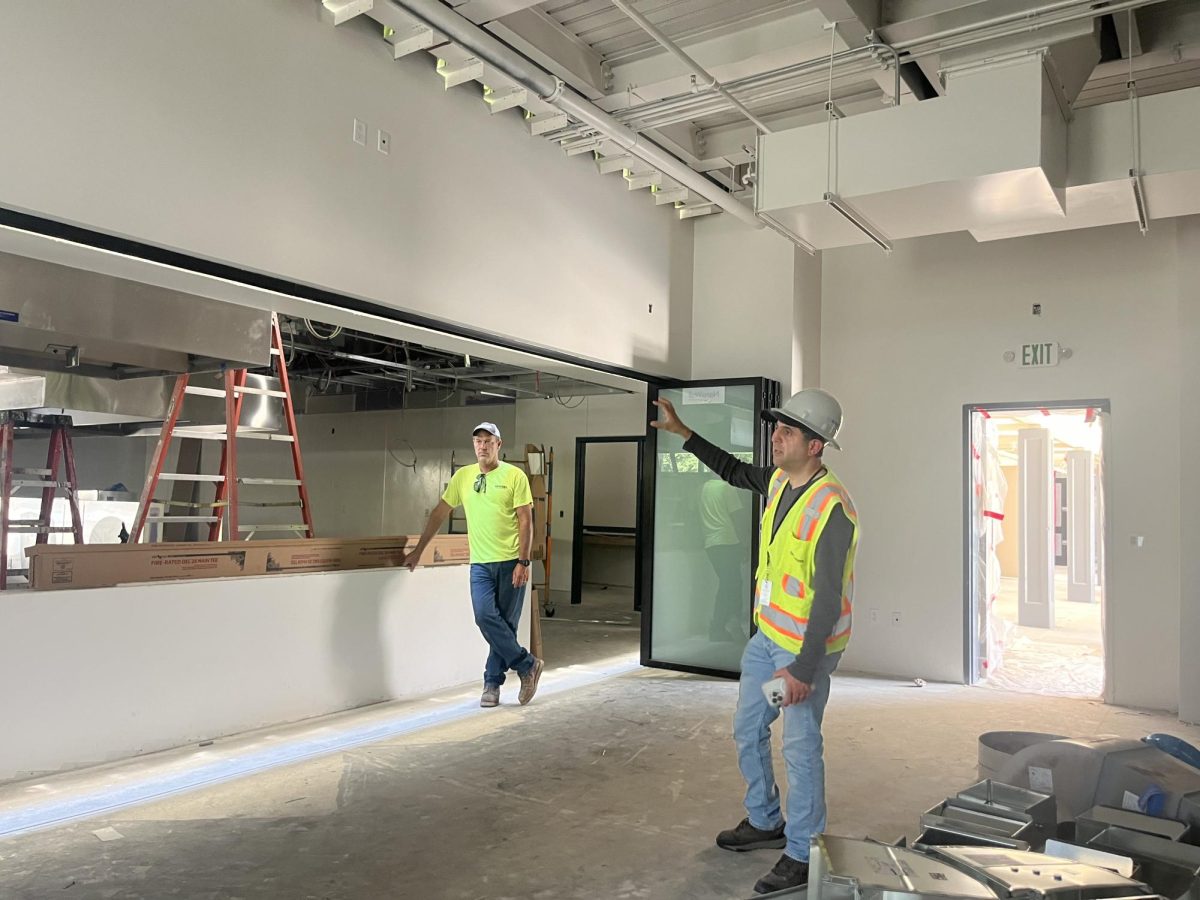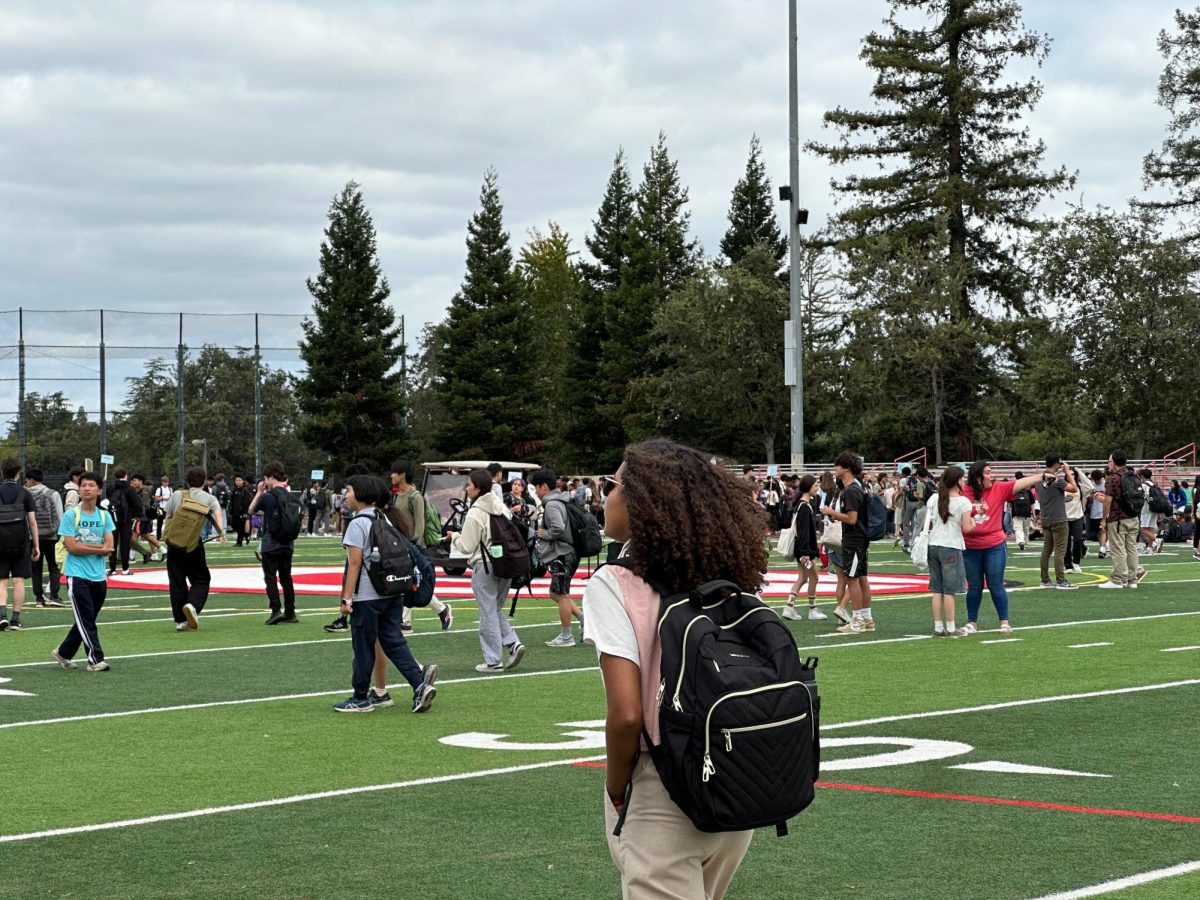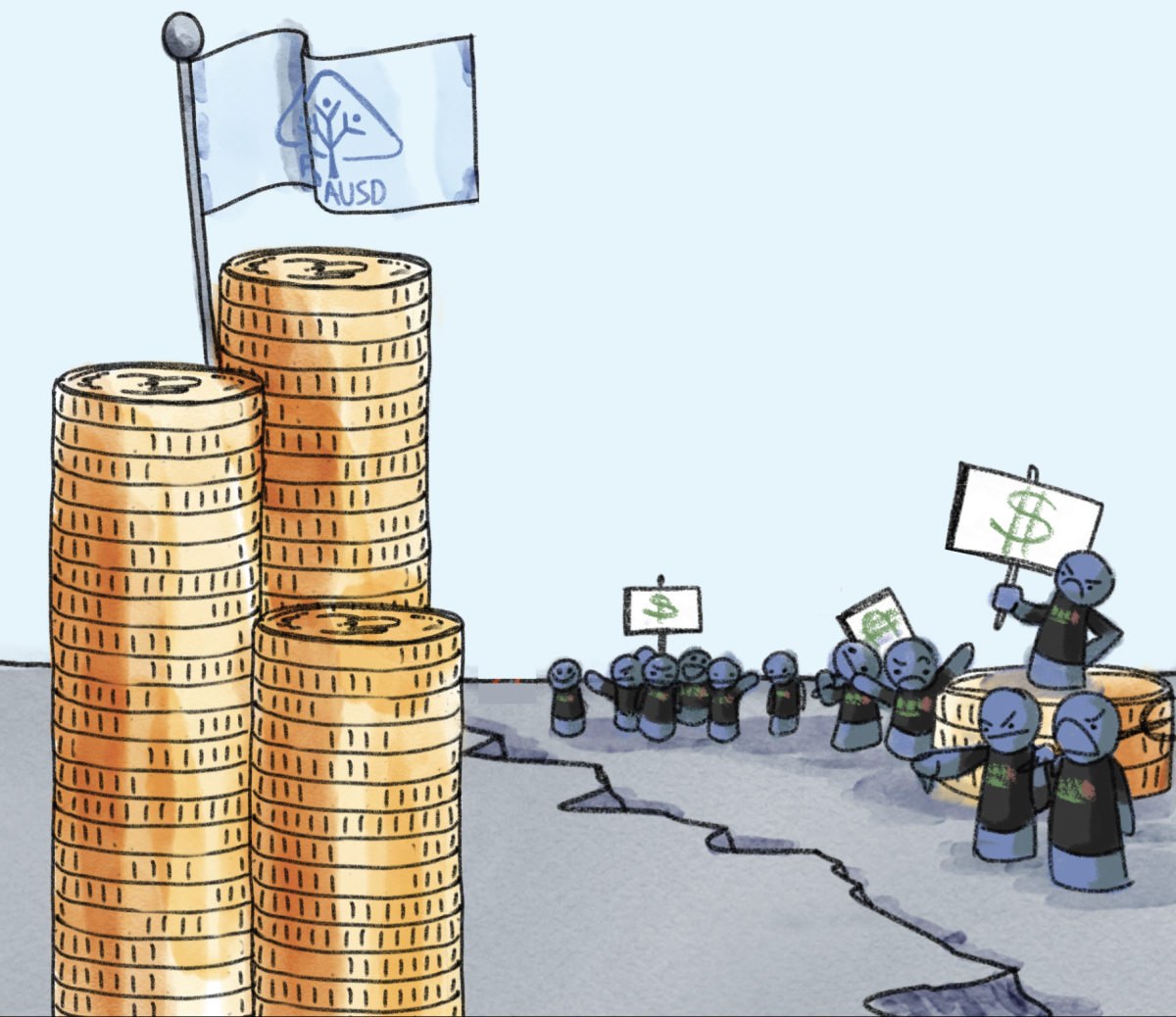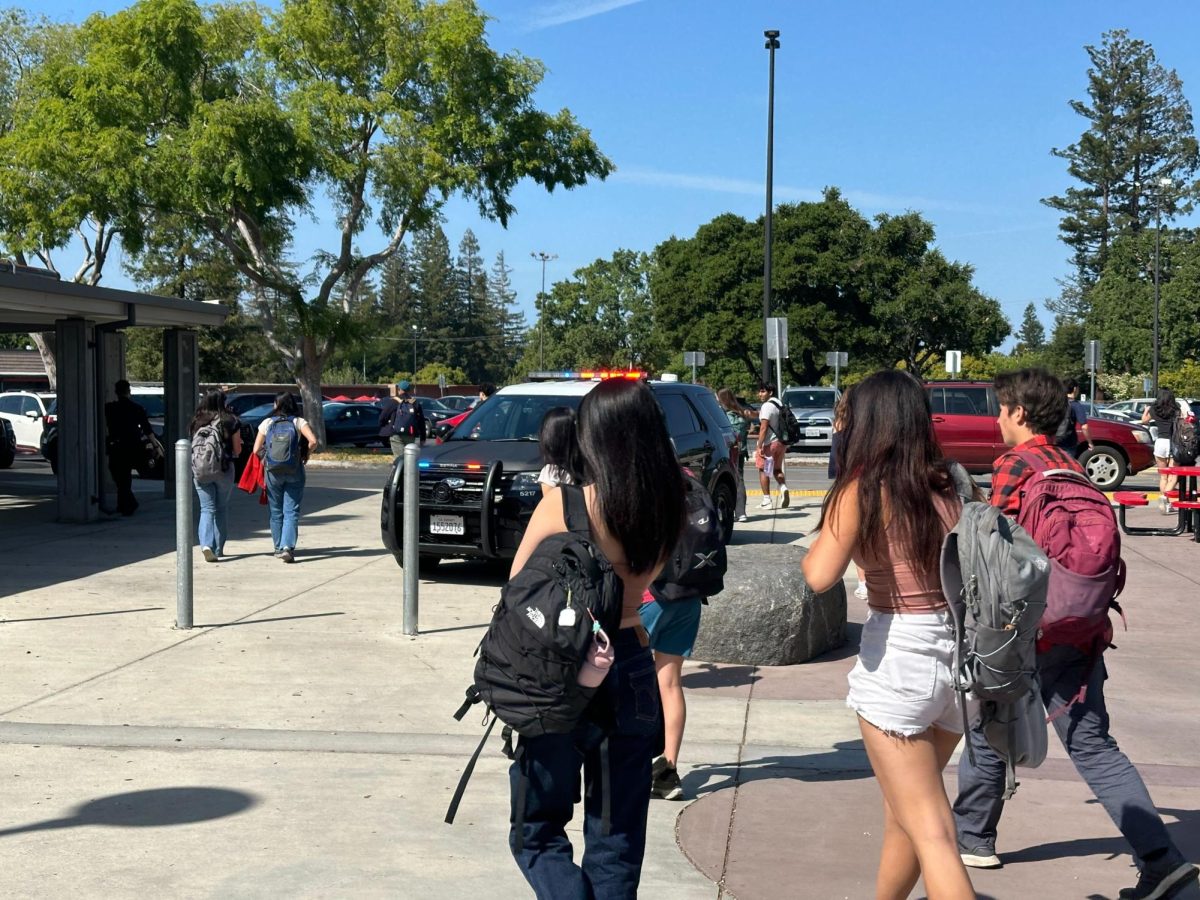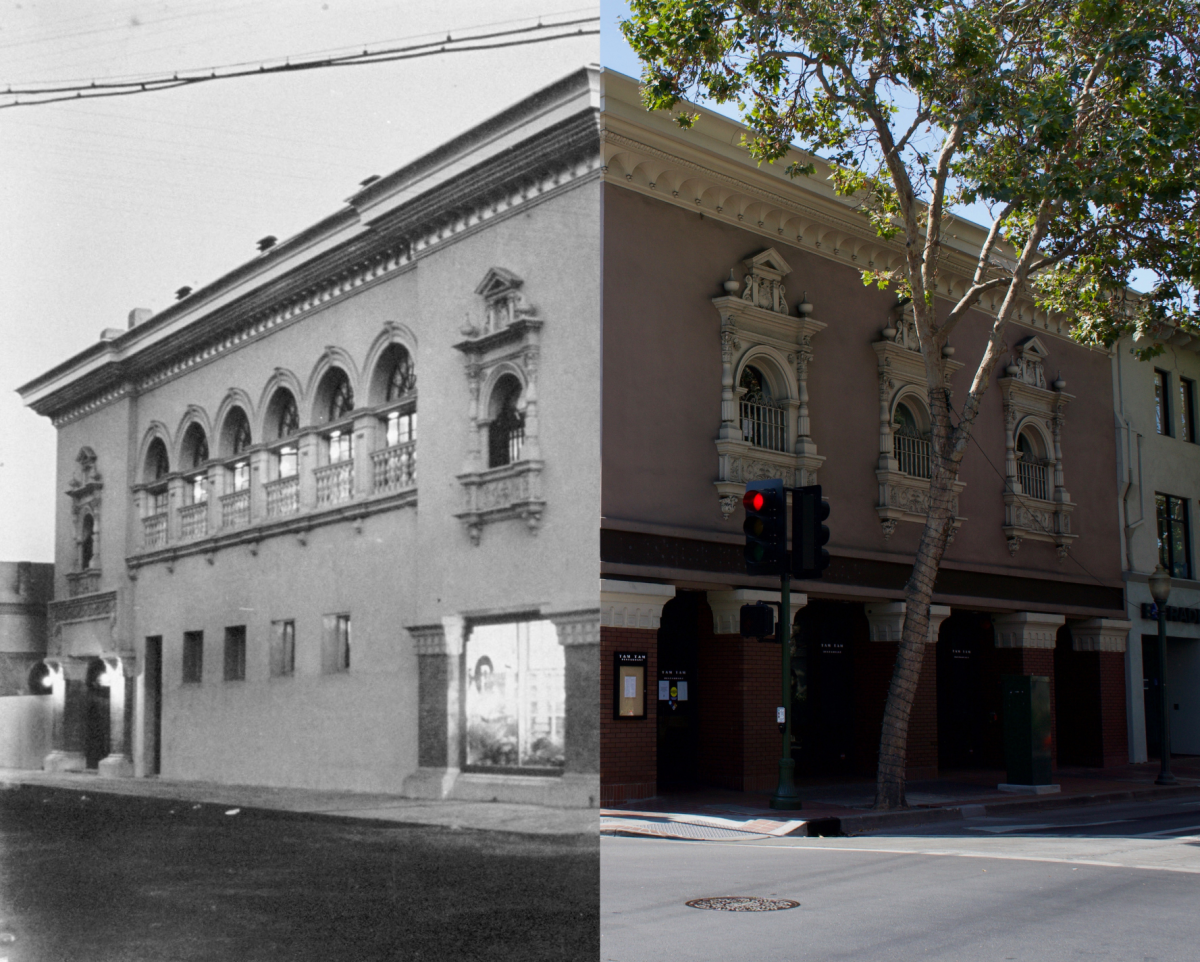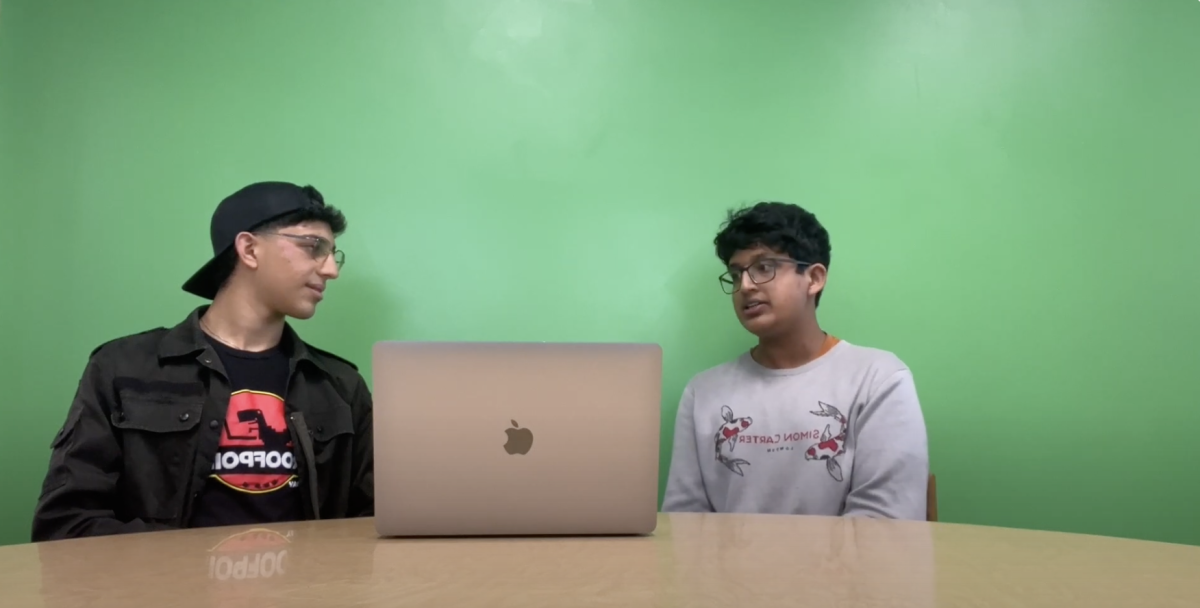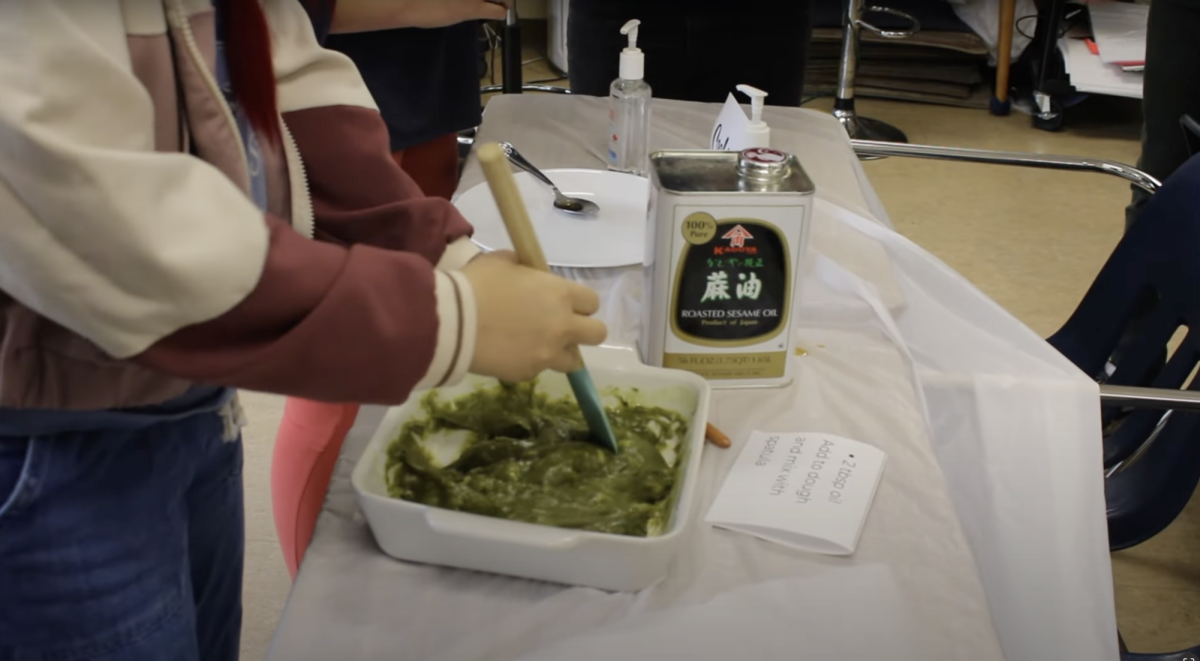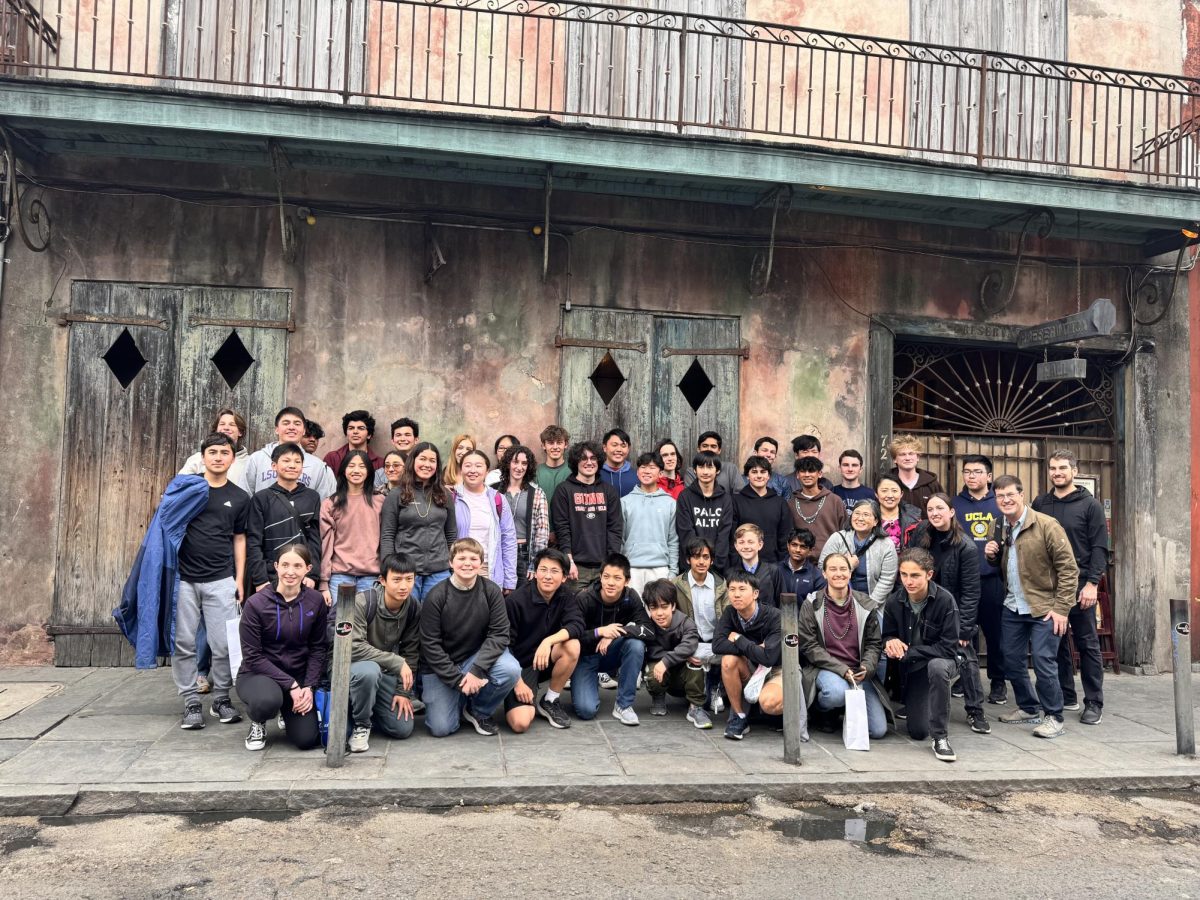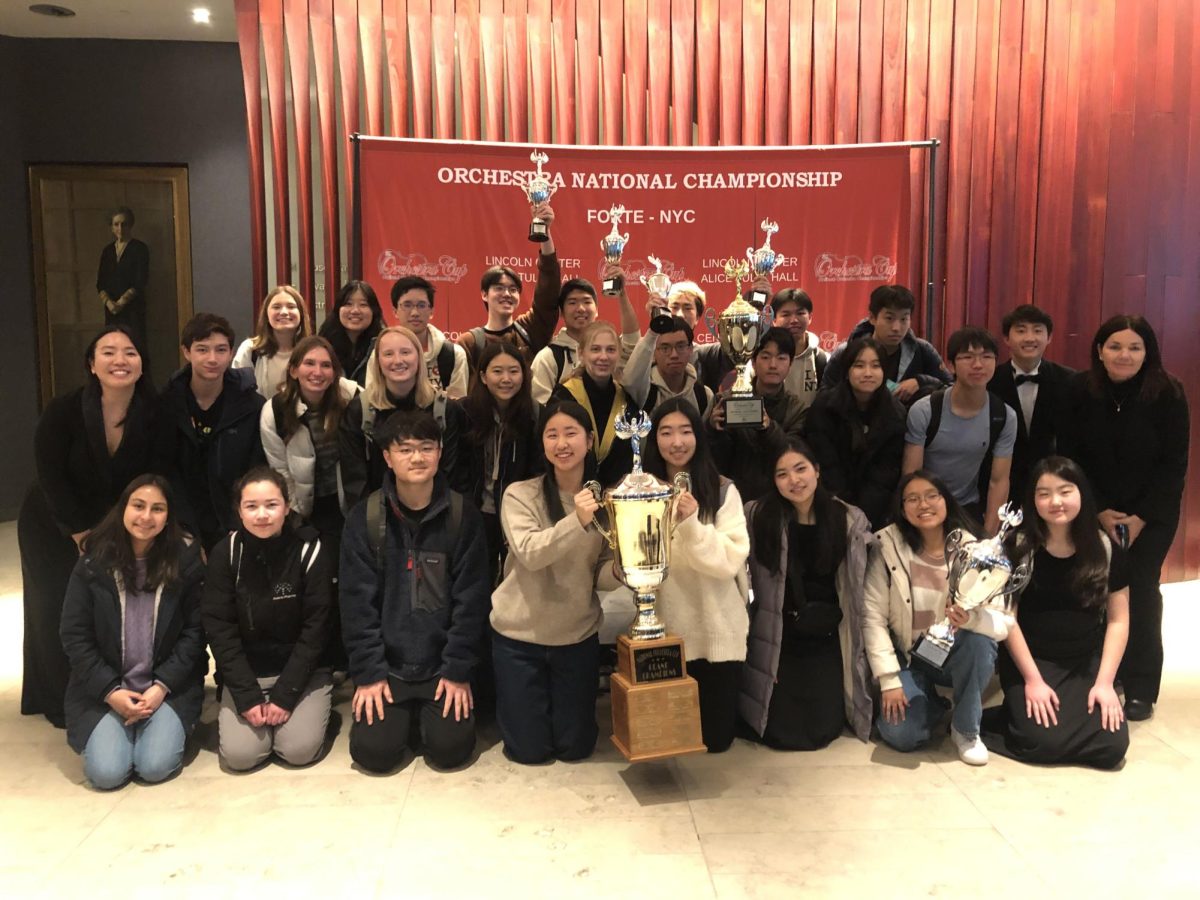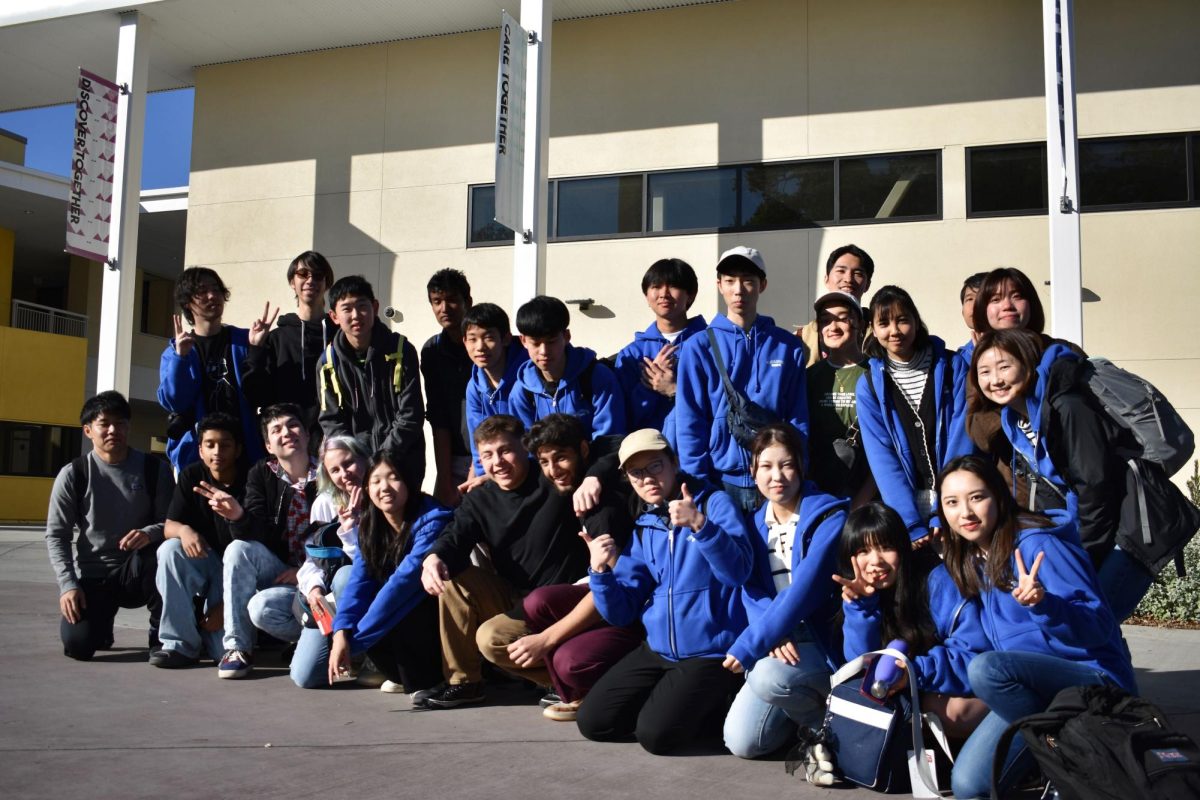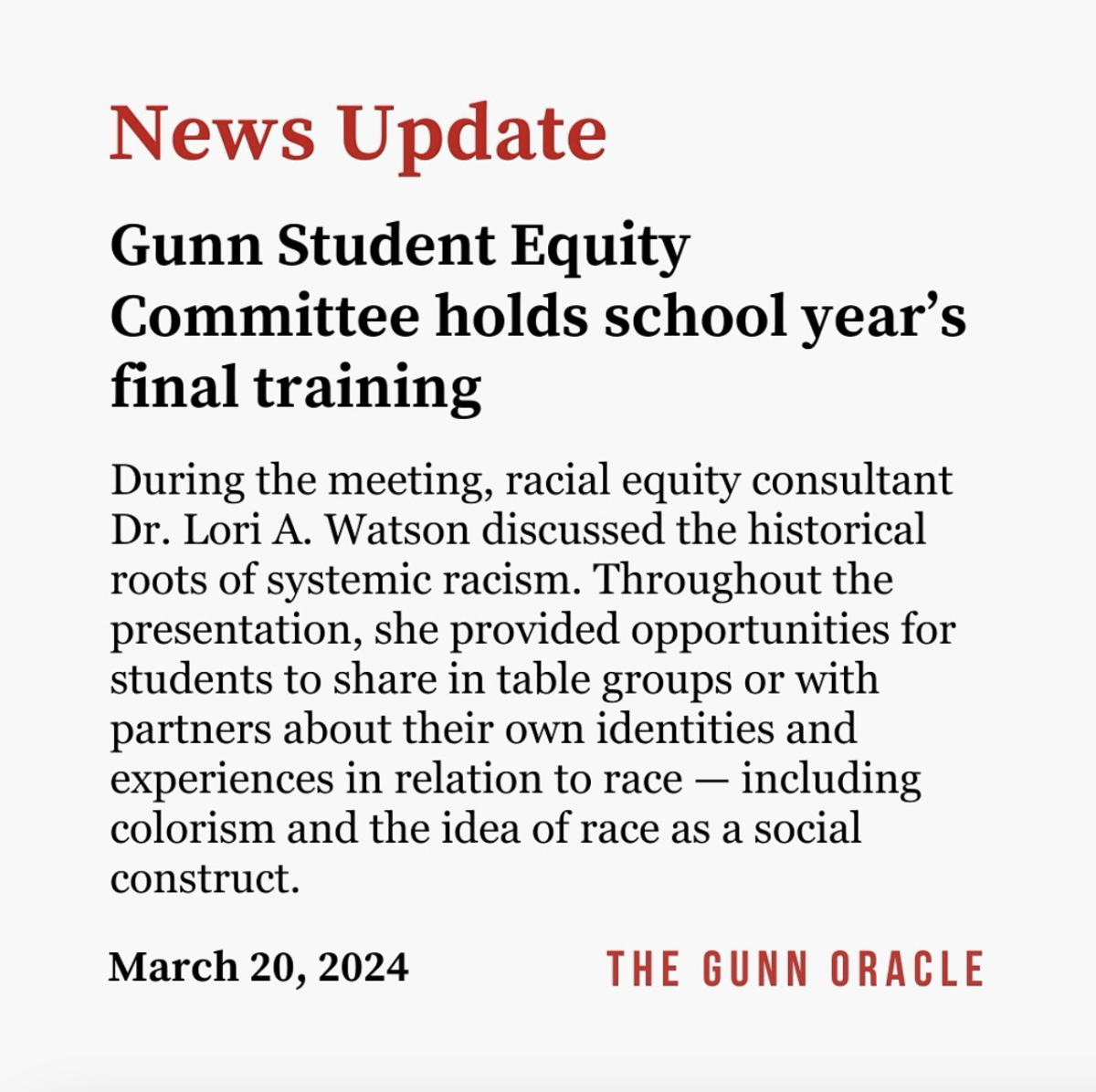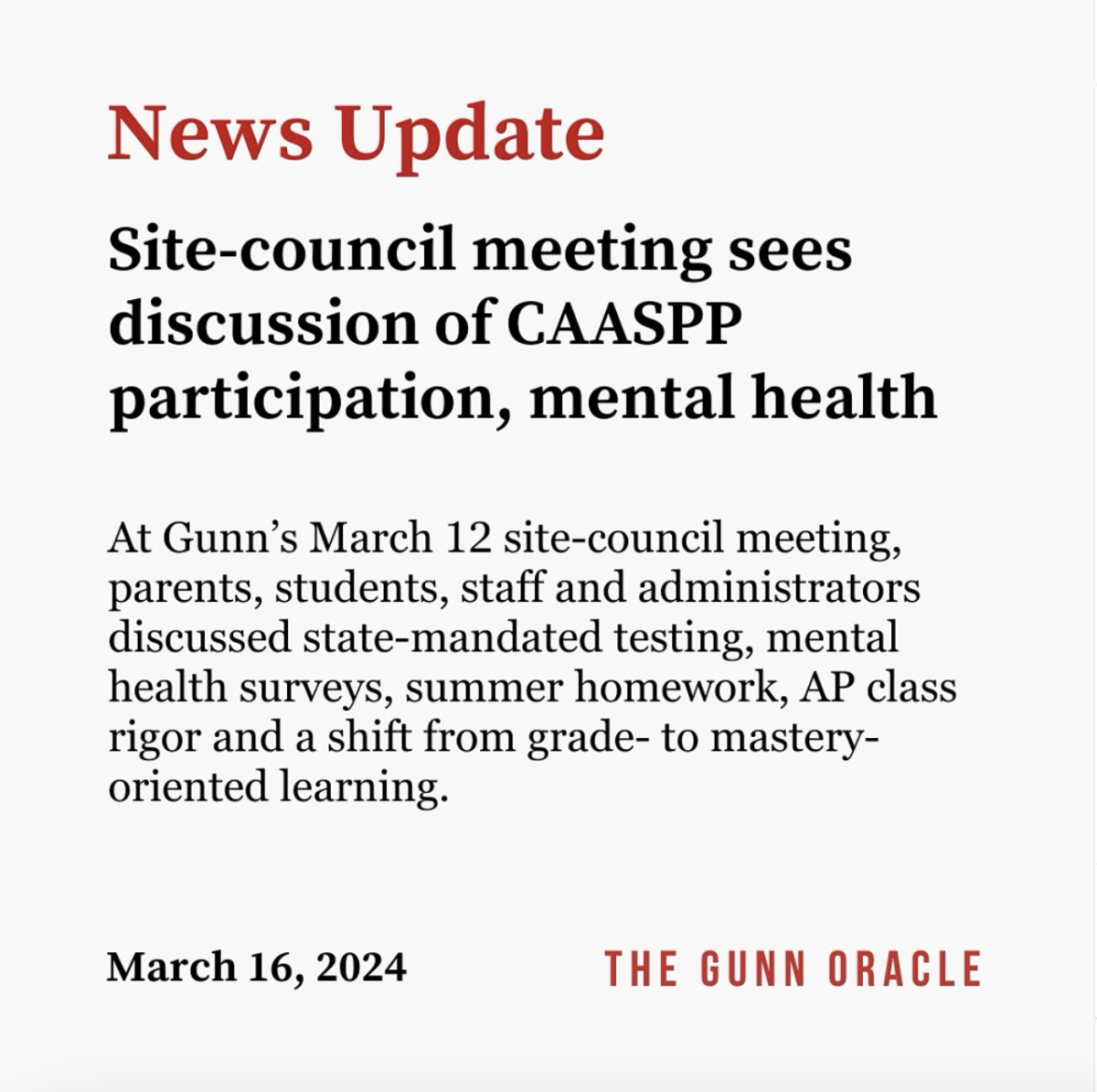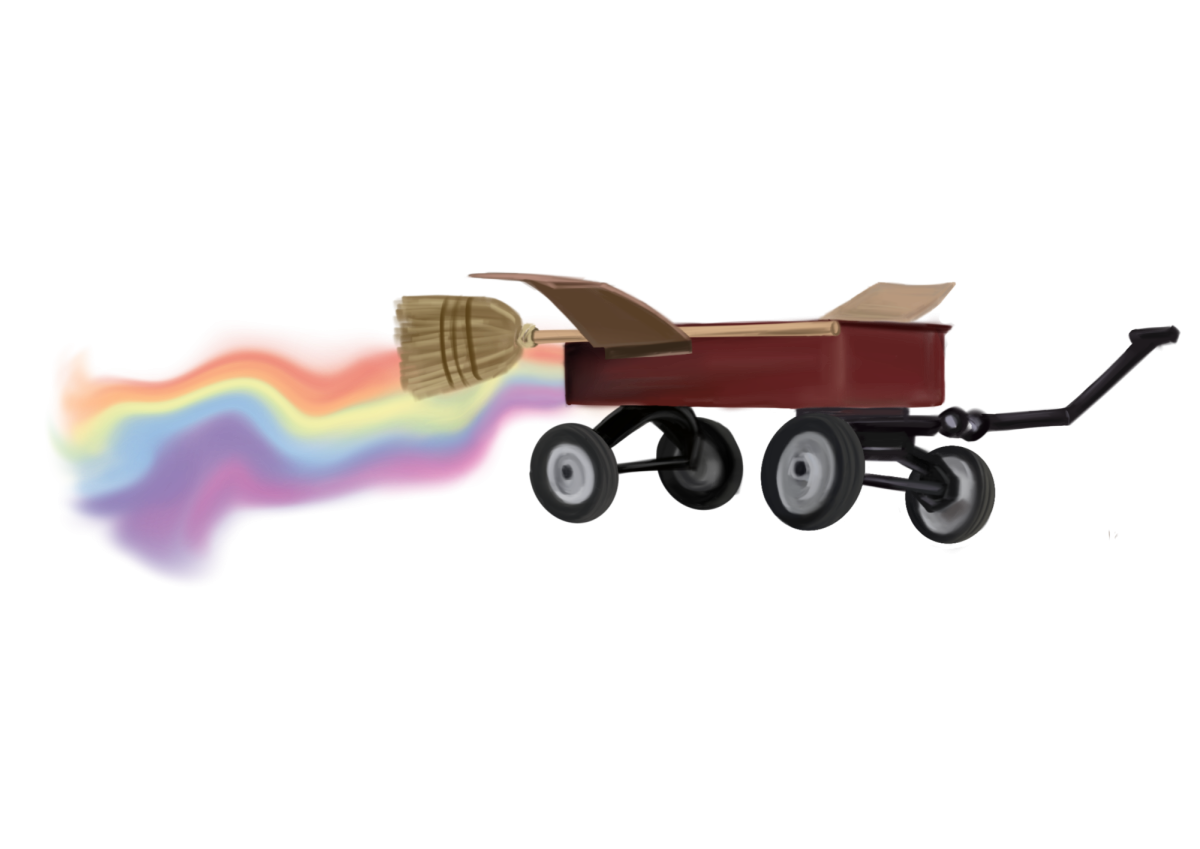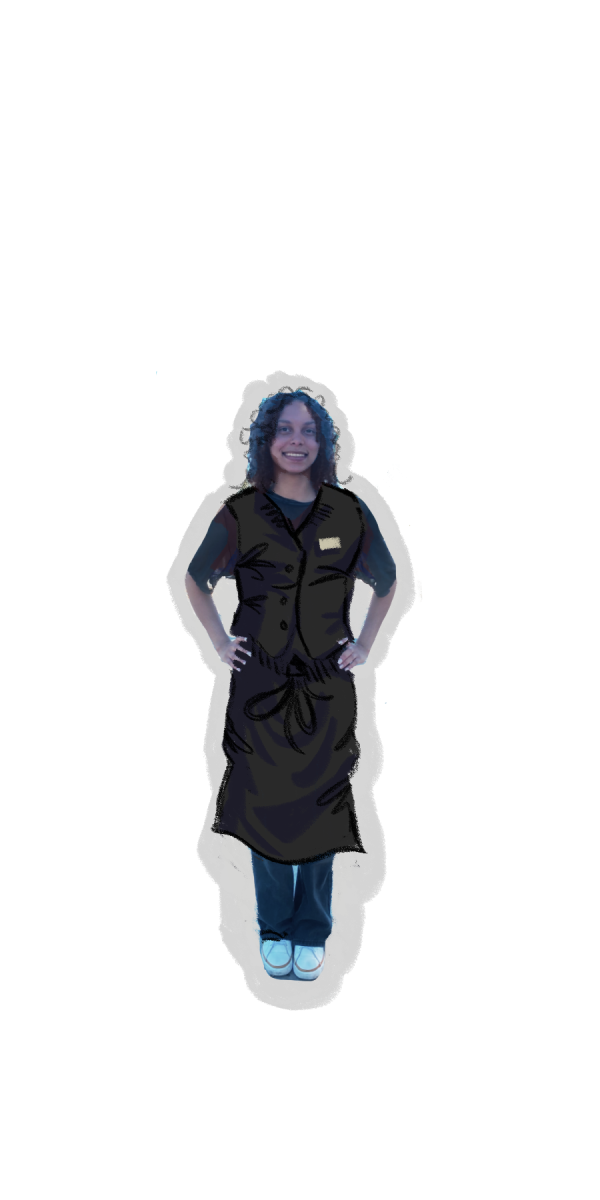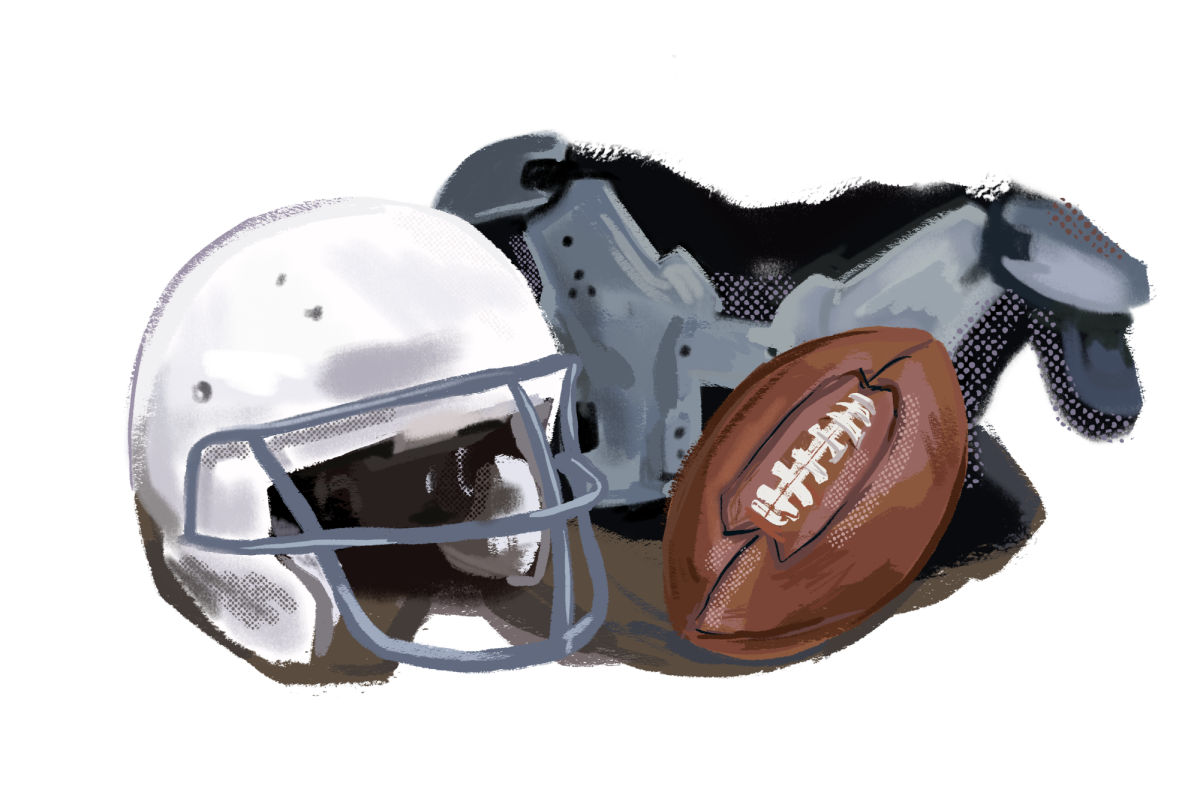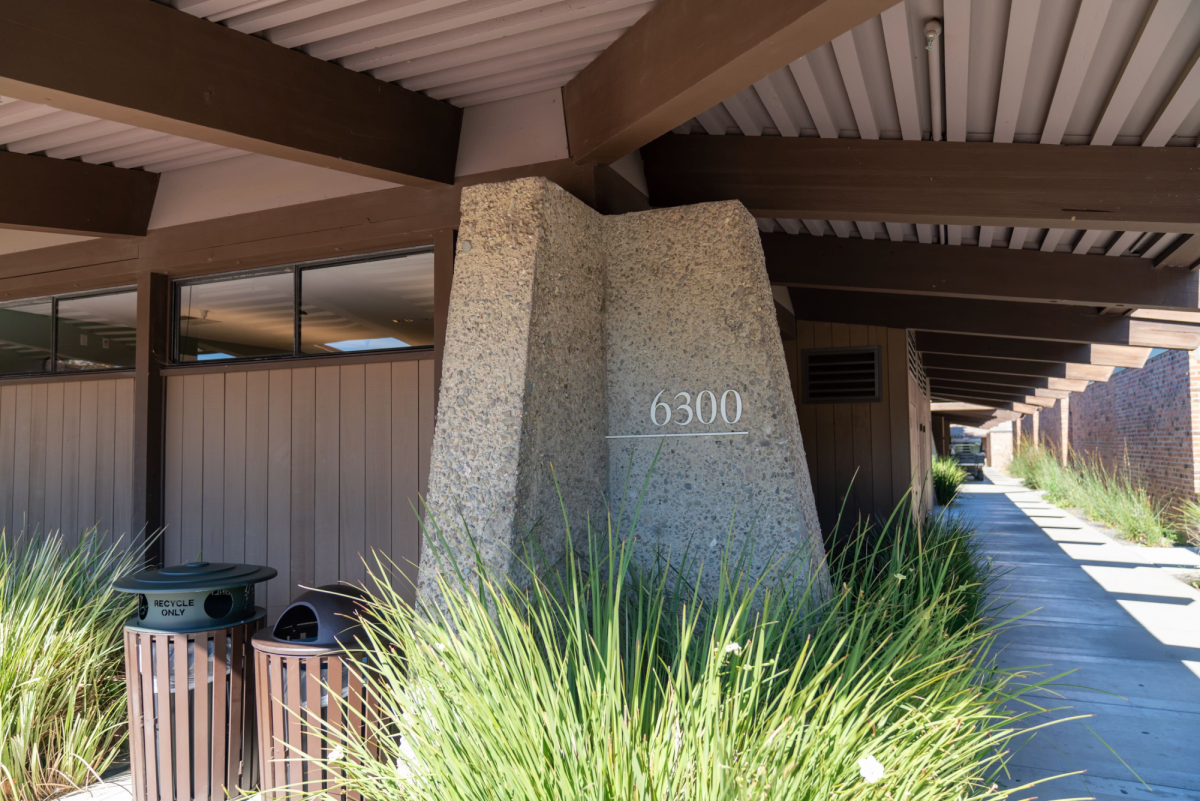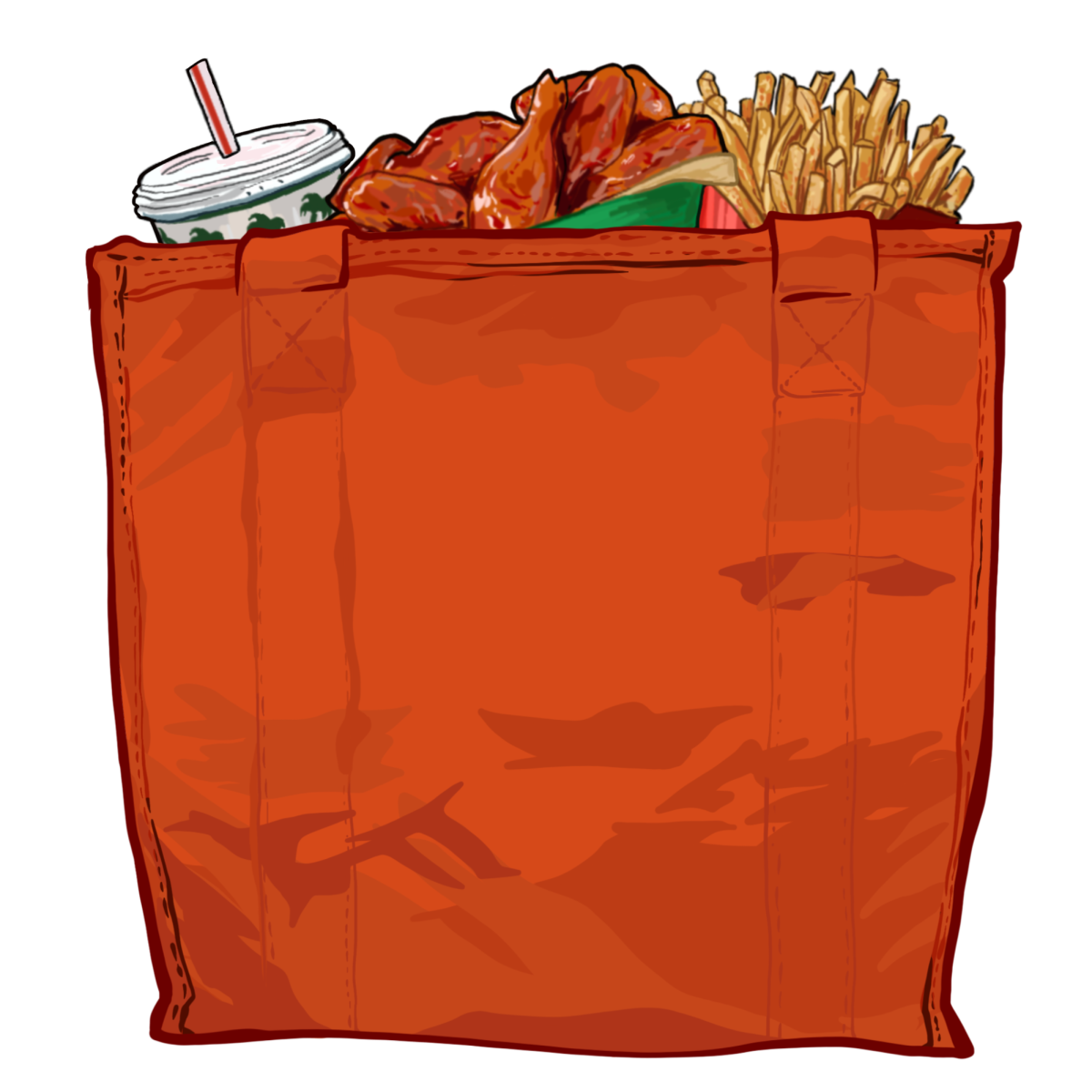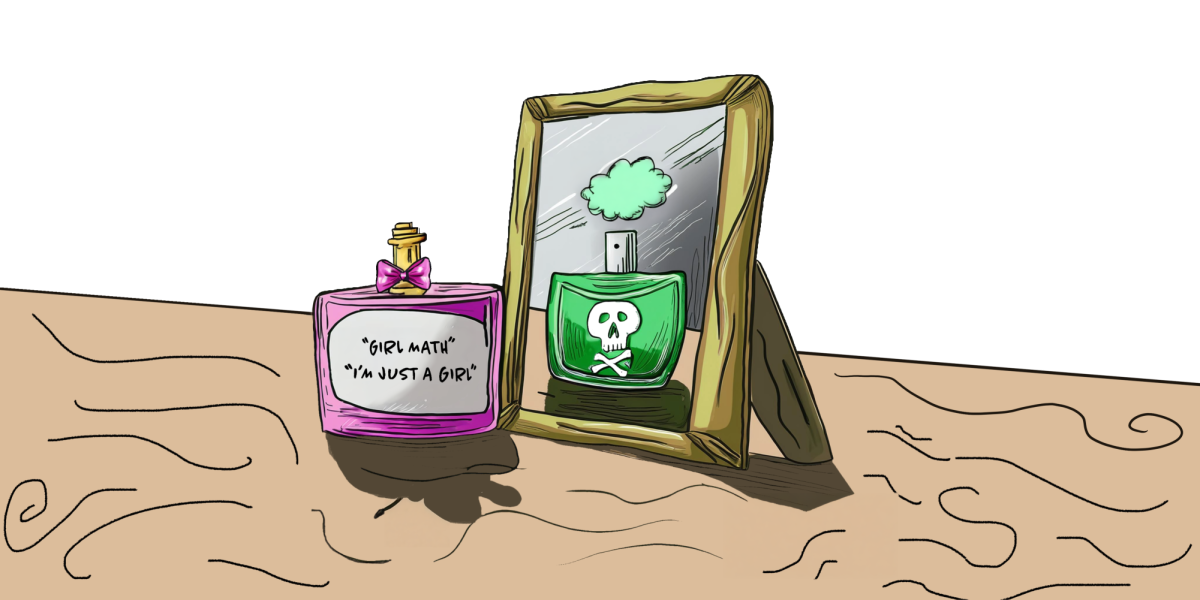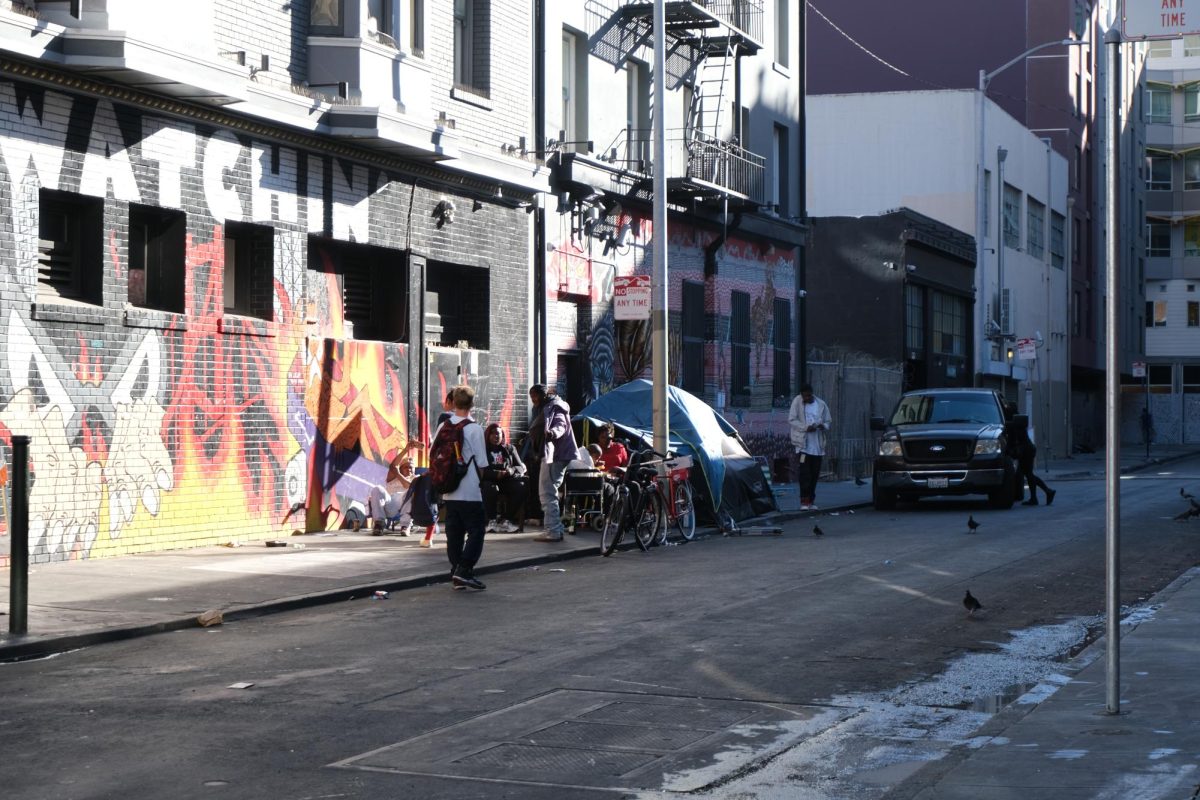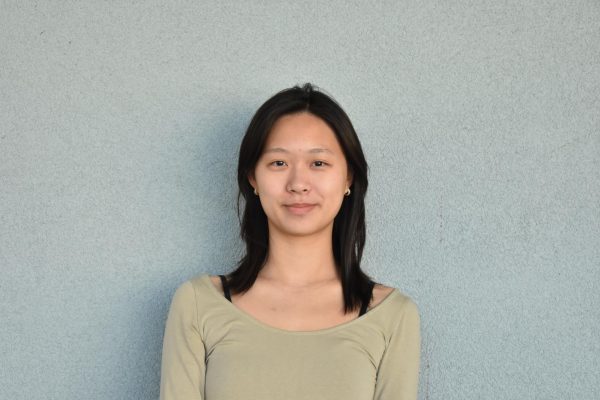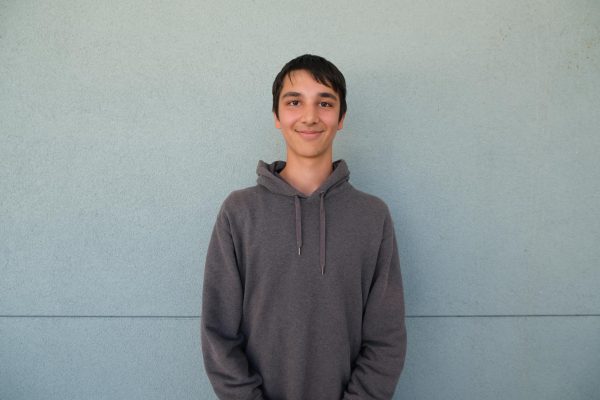In 2017, Gunn implemented the Social-Emotional Literacy and Functionality program in response to growing concerns about student mental health on campus and new California social-emotional learning standards.
This program is the first of the wellness initiatives The Oracle will be investigating in a continuation of its 2019 “In the Pursuit of Wellness” series. The objective is to better understand the efficacy of Gunn student-wellness approaches. Our question: Are these measures working, and how can we further promote student wellness?
The creation of SELF
Intended as a space for students to build connections with trusted adults and peers, SELF classes meet biweekly — in rotation with Study Hall — during the school year. This model, adopted during the 2022-23 school year due to teacher compensation issues, marks a shift from the program’s original weekly structure. As before, however, cohorts remain together during all four years of high school.
SELF Coordinator Kathryn Catalano noted that the program’s goal is to promote students’ emotional regulation, communication and empathy.
“Creating that structure where students have opportunities to practice those things is really important in terms of long-term growth,” she said. “I think our school is very lucky to be able to offer a program like this.”
The SELF curriculum is based on California’s Social and Emotional Learning Competencies, or the T-SEL Competencies, which include self-awareness, social-awareness and relationship skills. Gunn’s SELF curriculum also draws on sources such as private-school curricula; Project Wayfinder, an organization that provides packaged grade-specific SEL curricula to schools; Stanford professor Linda Darling-Hammond, a social scientist who advised the curriculum’s development in 2016; student organizations such as the Gender Sexuality Alliance and Title IX Club; and proposals from individual students.
Currently, SELF is designed to suit different grades’ needs. For example, ninth graders begin with lessons on “Founding a Community,” which includes identity development and community-building, while second-semester seniors focus on “Life after Gunn.”
According to Assistant Principal and former SELF Coordinator Courtney Carlomagno, the SELF curriculum constantly evolves based on feedback from feedback forms, focus groups, administrators and SELF Advisory Board students (whose names students can see on the SELF feedback form in the Schoology SELF course). For instance, the Community Circles activity — in which students take turns sharing in a circle — was implemented in response to students’ suggestions in feedback forms to have more discussion, and freshmen were sorted into SELF cohorts with their World History class starting in the 2022-23 school year to enable more frequent connections.
Student sentiments
Data from the Panorama surveys, which are administered every spring and fall to all secondary-school students, shows improvement in students’ cultural awareness and emotional regulation from 2020 (the first year the survey was administered) to 2023.
Students’ satisfaction with SELF, however, has roughly remained the same. In the SELF feedback form, sent to students every fall from 2020-23, students were asked to rate on a scale of 1 (“not effective”) to 5 (“effective”) the SELF program’s effectiveness at reaching five goals: “spending time on team-building and relationship-building,” “broad-ranging conversations during check-ins,” “exploring topics that matter,” “hearing a variety of student perspectives” and “having fun as a community.”
For all of the goals, the most selected rating was a “3,” and the second-most selected was a“4.” “Having fun as a community” and “broad-ranging conversations during check-ins” were considered relatively more effective compared to goals such as “building relationships.”
Additionally, many students feel that they are not especially connected with their SELF cohort and mentor. According to the results of the SELF feedback form from fall 2020 to fall 2022, many students felt that their connectedness to their SELF cohort was the same as with their regular classes: An average of 49.3% of students felt about as connected to their SELF cohort in fall 2020, 53.0% in spring 2021, 49.6% in fall 2021, 58.4% in spring 2022 and 44.8% in fall 2022.
Similarly, over the years, many students felt that their connectedness to their mentor was the same as to their teachers in regular classes. Sophomore Elizabeth Pérez feels that SELF has not supported her social-emotional skills. While she understands the community-building purpose of the program, she has found that the lessons often feel forced.
“(SELF) feels like it forces interactions between students when most of them don’t really want to do it,” she said. “Some think it’s kind of useless, like, ‘What are we supposed to do here, when I could be doing other stuff?’”
Similarly, senior Benjamin Vakil believes that SELF’s content is not always practical or helpful for students. Seniors, for example, watched Yale University psychology professor Laurie Santos’ videos about the science of well-being.
“I don’t think students are interested in the theoretical things about happiness or Yale’s classes,” Vakil said. “I think that that’s not been beneficial to that vast, vast, vast majority of students, which is unfortunate because Gunn needs students to be well mentally.”
However, SELF has strengthened Vakil’s relationship with his mentor.
“SELF definitely doesn’t help me content-wise, (but) what is good for me is having a connection to a teacher throughout all four years, (and) I’m lucky enough to have had the same teacher,” he said.
Similarly, Freshman Class President Nathan Yoon has appreciated the peer relationships forged during SELF, although he finds the four-year format restrictive.
“I enjoy SELF and the time that I get to spend with the people in my SELF group,” he said. “Knowing you’re going to be with them for the next four years encourages you to befriend them. However, I think it is also kind of rigid to be stuck with the same group for all four years.”
When a self-selected survey conducted by The Oracle in December 2023 with 133 responses asked students what the most important thing they learned in SELF was, responses varied. Some students said SELF nurtures student-mentor relationships and positive thinking, but others described SELF as ineffective.
“We’ve been learning about happiness this year, but even though I think it’s interesting, I feel like most people don’t care and don’t think it’s useful,” one student wrote.
Another wrote, “While the objects and goals of SELF are good, the implementation of SELF is poor and the curriculum is like it was written for kindergarteners.”
Causes of disengagement
Freshman Class President Nathan Yoon believes that students’ negative responses stem from a failure to understand SELF’s purpose: to foster students’ social-emotional skills, such as empathy and resilience, and to provide a space to build trusting relationships. Contrary to some students’ beliefs, the program does not focus on providing counseling services.
“I say a lot of students don’t really recognize SELF for what it’s trying to be,” he said. “There’s a lot of antagonizing of it because people don’t see what the creators are trying to do with it.”
In the fall 2022 SELF feedback form, 51% of students selected “sort of communicated” when asked about how clearly the purpose of SELF has been communicated to them.
According to Catalano, another possible reason students don’t place importance on SELF is their tendency to focus on rigorous work, causing them to place less importance on soft skills, including many elements of self-care. Some may define success by the traditional path — acquiring a prestigious job and making a lot of money — which focuses on the importance of the individual rather than the community.
“SELF (is) about our larger community and supporting each other, which I think is not really how our community usually operates,” she said.
According to SELF Advisory Board member junior Julia Lee, students — hyper-focused on the present — may also fail to consider SELF’s long-term benefits. Lee believes that SELF will only be effective when students are willing to pay attention to the lessons and recognize educators’ intentions. “If we are not willing to engage in this topic, then there’s really no purpose because we are the ones who have control in whether we want to engage,” she said. “Think about the perspectives of those who are making these lessons, because if we think about why they are creating these lessons for us, the only intention is for our good.”
Looking forward: Improvements
Moving forward, SELF will continue to evolve, and administrators and teachers are open to student suggestions for improvements, especially in the wake of Feb. 20’s student death. Catalano says that adults on campus care deeply for students and are open to hearing any suggestions and concerns.
“We want to support everybody, and I hope that this experience leads students to feeling like there are more adults on campus who care about them instead of less,” she said.
SELF teacher David Bisbee says his priority is to make his SELF class a comfortable environment and serve student needs.
“I’m interested in what students want,” he said. “What I think the program has done well over the years is listen to students and have an opportunity for students to talk and share what’s working (and) what’s not.”
Students have also proposed SELF lessons. Lee has been active in proposing and implementing new lesson plans for SELF, such as one on non-violent communication and positive thinking, which is expected to show up in spring 2024.
“I thought maybe implementing lessons on non-violent communication could be something that students relate to,” she said.
Focus groups have also been hosted periodically, in which one student from each ninth- and 10th-grade SELF class volunteers to gather and give feedback to questions such as “What types of activities have you enjoyed most in SELF?” and “What has worked well to build connections in your cohort?”
Other students can give feedback to the SELF Advisory Board, which students can apply to join every May. The SELF Suggestion Box Google form is also available on each student’s SELF Schoology course.
SELF will continue to adapt to optimize student wellness, which is the top priority, through student feedback.
“It is important to get negative feedback,” Catalano said. “Because we want it to be a program that works for everybody, not just the kids who are excited to be there.”


